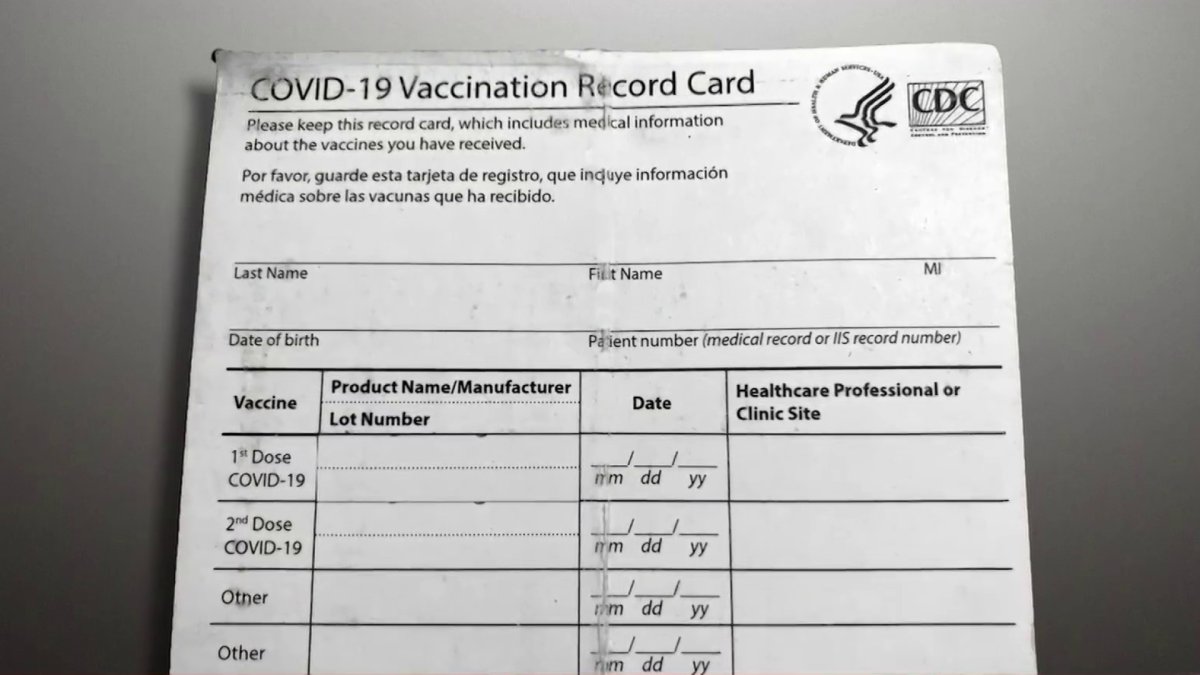
NBC 7 Responds’ Consumer Bob looks at the pros and cons of laminating vaccine cards and how they’ve been protected in the past.
As more and more people get vaccinated against COVID-19, some may be looking into laminate the cards to protect them. But even though vaccine cards have been around for decades, laminating them has not been a common form of protection.
"We've been keeping track of lots of peoples' vaccine status in the U.S.," said Rebecca Fielding-Miller, a public health professor at UC San Diego. "It's just usually done internally at your doctor's office."
Fielding-Miller says tracking which vaccines someone has received is nothing new. In fact, some people are given vaccine documents nicknamed "the yellow card" that shows which vaccines they've received.
"We're just used to having everything digital now," said Fielding-Miller. "You can look up health records, your insurance status. You can get a copy of your birth certificate if you really need to. We're not used to hanging on to paper documents anymore."
Get San Diego local news, weather forecasts, sports and lifestyle stories to your inbox. Sign up for NBC San Diego newsletters.
There are several reasons why you do not need to laminate your COVID-19 vaccine card. Fielding-Miller says some of them are common sense.
"Keep your vaccine card with other important documents," said Fielding-Miller. "With your birth certificate, social security card, your passport if you have one."
Local
She also recommends making a photocopy of the card as soon as it's filled out. If you lose the card, contact the health provider or location you received the vaccine at. They keep records of who has been vaccinated and can recreate the card.
"I wouldn't laminate it just because there's a potential you might need to get a booster shot down the road as other variants emerge," said Fielding-Miller.
If you want to keep it safe, put it in a plastic sleeve. Fielding-Miller also says it's very unlikely you would need to carry it for everyday use.
"I don't foresee a situation where you need to have it in your wallet ready to go so you can go grocery shopping, or to a restaurant," said Fielding-Miller. "Nobody in public health thinks that's a good idea."
However, the card might be needed to travel to other countries or potentially required by schools or colleges like other vaccines. That's why Fielding-Miller recommends making a copy, and keeping it somewhere you know you can find it.